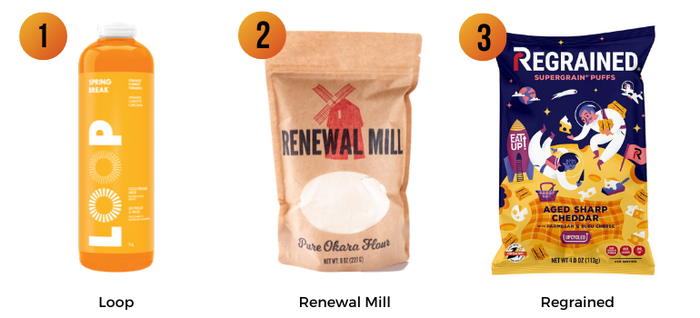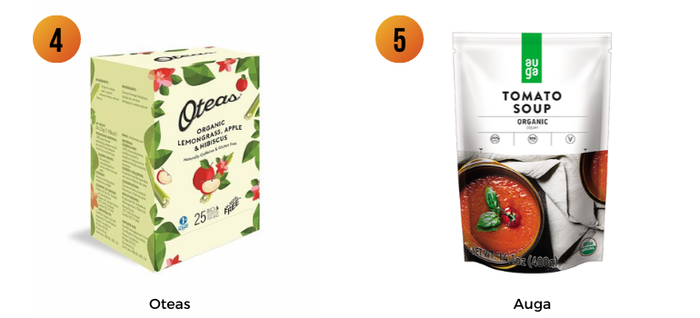The 'waste reduction' trend: 5 innovatorsThe 'waste reduction' trend: 5 innovators
NEXT Trends 2020 Expo West series—a look at "waste reduction," one of the New Hope Network NEXT Data and Insights team's material optimization trends.
April 7, 2020

NEXT Trends 2020 series: In an effort to help support retailers and brands, we will be publishing regular brand features for the next few weeks. Brands are selected from those that registered to exhibit at Natural Products Expo West 2020 and were curated as great examples of one of 50 trends New Hope Network is monitoring in the marketplace.
These trends are part of New Hope Network's NEXT Expo Guidebook and trend hierarchy.
Today, we look at five companies that are innovating in the "Waste Reduction" trend within the Material Optimization macro force. Brands and businesses are stepping up with clever ideas to reduce and remove waste along various steps and corners in the supply chain. Through byproduct turned value add or ingredient optimization ideation, waste otherwise known as a pollutant turns into energy or edible food.

1. Loop
What is it? LOOP is a circular economy project created to put an end to food waste. The company turns rejected fruits and vegetables into cold-pressed juices, sparkling kefirs, beers, gin and soaps.
Innovation: LOOP collaborates with major food industry actors to save perfectly good products discarded before ever reaching grocery stores. These products include fruits and veggies, day-old bread, rescued permeate, potato cuttings and upcycled oil. In addition to drinks and soap, LOOP also makes vegan dog treats with the residual pulp left from juice processing and pizza crusts.
2. Renewal Mill
What is it? A baking company that uses a byproduct of soy milk processing to create a flour called okara flour. Renewal Mill also sells a dark chocolate fudge brownie mix and chocolate chip cookies made with the unique flour.
Innovation: Renewal Mill takes overlooked materials and transforms them into delicious food. Added to any flour-based product, its okara flour adds fiber, protein, vitamins and minerals while allowing the food to retain its same taste, texture and appearance. A staple in Asia for centuries, okara is produced using only traditional and natural methods.
3. ReGrained
What is it? Supergrain puffs and bars made of spent grains from beer brewing.
Innovation: Spent grains from beer brewing are reclaimed to make nutrient-rich energy bars and puffs. New snack puffs are being released in flavors like Urban Garden, Mexican Street Corn and Smoked Sea Salt and Pepper. ReGrained is a certified B Corp.

4. Oteas
What is it? A tea company that is 100% plant based and plastic free, with bags and boxes that are compostable and biodegradable.
Innovation: Oteas' tea bag mesh is made from plant-based material, rather than nylon or polypropylene. Oteas also uses FSC-recyclable boxes, printed with vegetable ink. The inner wrap is a home compostable biofilm.
5. Auga
What is it? Auga is a large, organic, vertically integrated food company in Lithuania. It sells milkshakes, vegetable soups, ready-to-eat mushrooms, vegetables and pulses.
Innovation: Auga’s vertical integration allows its farms to operate a sustainable farming model similar to a regenerative model that specializes in crops, dairy cows, chickens and mushroom growing.
About the Author
You May Also Like





